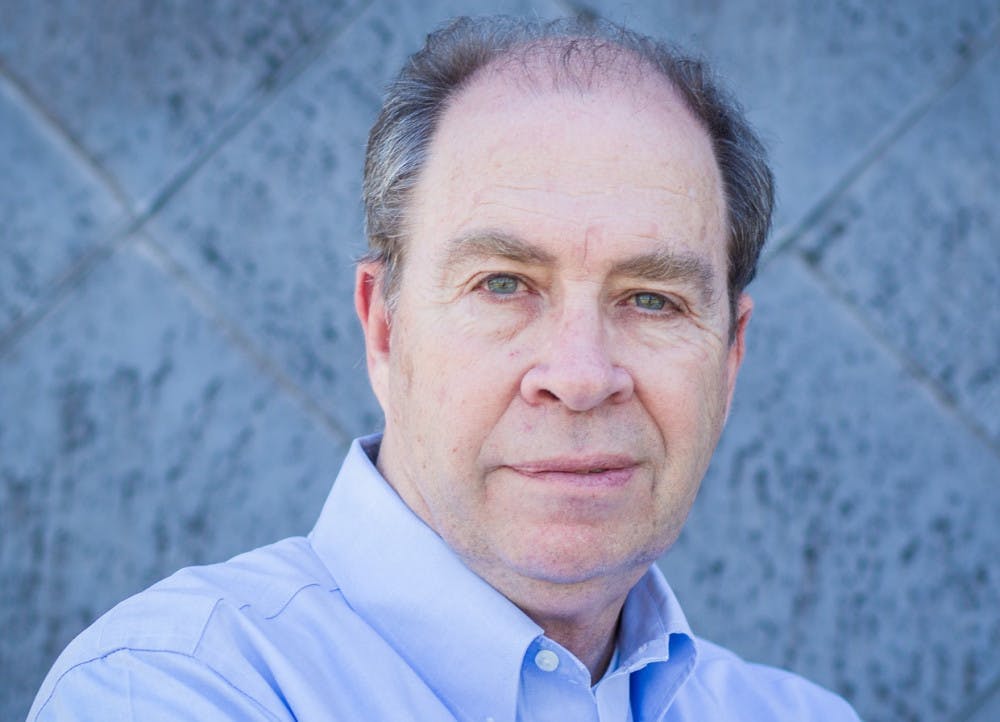After 44 years of teaching at Middlebury College, Tom Beyer will be retiring from his teaching responsibilities after the 2019-2020 academic year. As of this past Monday, Jan. 21, he is one of 23 faculty members who have signed agreements to participate in the Faculty Retirement Incentive Program (FRIP).
In an email to all employees last June, President Laurie L. Patton announced the introduction of a set of elective, incentive-based retirement and separation plans for faculty in Middlebury and Monterey as part of the college’s workforce planning effort for both faculty and staff. This later developed into FRIP.
The college will save money from FRIP despite the total number of faculty remaining largely the same over the next few years. Because new, tenure-track faculty can be paid lower salaries than long-tenured professors, this series of faculty replacements will result in significant savings. According to Dean of Faculty Andi Lloyd, if all of the retiring faculty members were replaced, projections suggest that savings from this program could fall between $2 million and $2.5 million over the next several years.
The 117 members of the college faculty eligible for the program all have contract end dates later than July 1, 2021, and have worked in a benefits-eligible position for at least 10 years after age 45, according to the Office of Finance and Administration. The FRIP package will include a year’s salary and the establishment of a Health Reimbursement Account, as well as funds for scholarship and research for up to three years after retirement.
In general, Beyer, the CV Starr Professor of Russian & East European Studies, is pleased with the program. In comparison to a similar incentivized retirement program offered in 2008, which offered “one date, one payout,” and carried with it potentially “adverse tax implications,” the current program is “very flexible and thoughtfully cast,” Beyer said.
Beyer opted for the latest of his three options for retirement dates under FRIP: June 2019, December 2019 and June 2020. He explained that the program’s relatively early announcement relative to its implementation gave faculty enough time to examine the program’s “implications for their teaching, the implications for their scholarship and also the financial implications of the program.”
Assuming most departments hire new faculty to replace retiring faculty, the FRIP process is not expected to decrease overall teaching force at the college. As faculty leave Middlebury at a staggered pace, college officials expect that within three years, the total number will remain about the same as it is today.
Having advance warning of a faculty member’s retirement six to eighteen months ahead allows a department to “re-examine its own missions, goals, and possibilities for the future,” Beyer said.
[pullquote speaker="Tom Beyer" photo="" align="center" background="on" border="all" shadow="on"]“So much of our lives at Middlebury is defined by our relationship with and our connection with students. So of course, student interaction is something that I’ll miss.”[/pullquote]
In the Biology department this year, for example, students received emails requesting their participation in the department’s hiring process for a new faculty member to replace a retiring tenured professor in aquatic ecology. This process began a year in advance of the professor’s retirement and involved a series of research talks and teaching demonstrations by visiting candidates for the position throughout the fall semester.
“I think that [FRIP] gives an opportunity in particular to younger colleagues who aspire to tenure, to feel like there is a place for them,” Beyer said.
Newer faculty fresh out of graduate school “are aware of the latest and most up to date research in a whole variety of areas,” Beyer said. When Beyer first received his Ph.D. in Slavic Languages and Literatures, he was “much more of a generalist and was aware of the latest work in critical theory and writing.”
“After tenure, one becomes a bit more specific in the area in which they look at,” he said.
The ability to “teach the courses I really want to teach, one more time; to read the books I want to read, one more time,” was important to Beyer, who plans to teach a course on the Russian author Fyodor Dostoyevsky and another on 20th century Russian writers in the coming fall term.
“So much of our lives at Middlebury is defined by our relationship with and our connection with students,” Beyer said. “So of course student interaction is something that I’ll miss.”
For Beyer, however, ceasing his teaching responsibilities in the classroom also provides an opportunity to focus on his own research agenda, which he calls his scholarly “bucket list.”
“We were aware that the decisions that faculty make about retiring reflect both financial considerations and, in many cases, an interest in continuing to be productive scholars and to remain connected to their scholarly communities, here and elsewhere,” Lloyd said. FRIP’s enrichment fund, she said, was designed to allow faculty to continue their scholarly endeavors after retirement.
Continuing research after retirement, for Beyer, also means that “my connection with the college, with my scholarship, and with the projects that I have doesn’t come to an abrupt end.” Continued office space for one year after retirement, Beyer said, was “particularly important for me and, I suspect, for my other colleagues who exercise this option, to put their scholarly life in order and in perspective.”
“All things come to an end at some time,” Beyer said. “Here the end comes, as it were, as a choice.”
For full staff issue coverage, click here.
Faculty Retirement Program: ‘The End Comes as a Choice’

COURTESY PHOTO
Russian Professor Tom Beyer has been at Middlebury since 1975 and will be taking an early retirement in 2020.
Russian Professor Tom Beyer has been at Middlebury since 1975 and will be taking an early retirement in 2020.
Comments



